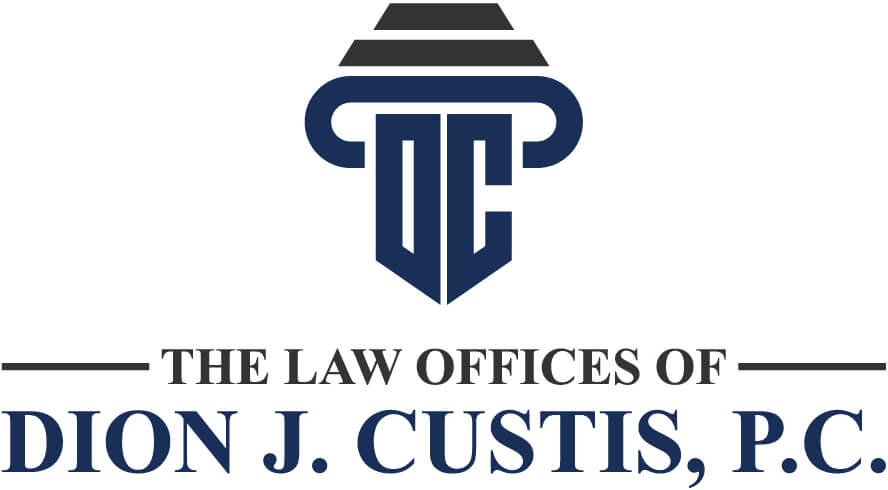I’m a First-Time Offender – Is There a Way to Avoid a Conviction (for Example, Through Diversion)?
Being arrested or charged with a crime for the first time is one of the most stressful experiences a person can face. You might be thinking:
“Will this stay on my record forever?”
“Am I going to jail?”
“I made a mistake — do I have any chance at a second chance?”
The good news? Yes — if you’re a first-time offender in Colorado, you may have options to avoid a conviction entirely.
Colorado offers alternatives to traditional prosecution, including diversion programs, deferred sentencing, and deferred prosecution. These options are designed to give people like you a chance to take responsibility, make amends, and move forward without a permanent criminal record.
Let’s explore how these programs work, who qualifies, and how a skilled criminal defense in Colorado can help you take advantage of the opportunity.
What Is a Diversion Program?
A diversion program allows first-time offenders to avoid prosecution altogether. Instead of going through the full criminal process, you agree to complete certain conditions — like community service, counseling, or treatment — in exchange for the charges being dismissed once the program is complete.
It’s not a plea deal. You don’t plead guilty, and if you complete the program successfully, you walk away with no conviction on your record.
Diversion is one of the most powerful tools in criminal defense in Colorado — but it’s not automatically offered. You or your attorney must request it, negotiate for it, and convince the prosecutor that you deserve this second chance.
Who Is Eligible for Diversion in Colorado?
Eligibility for diversion programs depends on:
✅ The nature of the offense
✅ Whether this is your first criminal charge
✅ Your willingness to accept responsibility and comply with the program
✅ The prosecutor’s discretion
✅ Whether there was a victim involved — and if they object to diversion
Diversion is most commonly offered in cases like:
- Shoplifting or petty theft
- Minor drug possession
- Disorderly conduct
- Criminal mischief (property damage)
- Trespassing
- Certain juvenile or municipal offenses
Every case is different. That’s why a defense attorney with experience in criminal defense in Colorado will help assess your eligibility and negotiate with the district attorney for the best possible outcome.
What Does a Diversion Program Involve?
Diversion isn’t a “get out of jail free” card — it’s a structured program with specific requirements you must follow. These may include:
- Community service
- Anger management or substance abuse classes
- Restitution to victims
- Regular check-ins with a diversion officer
- Staying out of legal trouble for a set period (usually 6–12 months)
If you follow the rules and complete the program, your case is dismissed — and you may be eligible to seal the record immediately.
But if you fail to comply, the case may be re-filed and prosecuted — which is why a strong support system and guidance from a criminal defense in Colorado attorney are essential.
Real-World Example: Shoplifting Case Dismissed After Diversion
A college student was arrested for shoplifting from a department store in Colorado Springs. She had no prior record, and the value of the stolen items was under $100.
Her attorney negotiated a diversion agreement: 24 hours of community service, an anti-theft course, and no new legal trouble for six months.
She completed everything on time, and the charge was dismissed. She later sealed the record — and was able to pass background checks for internships and graduate school.
This is the kind of life-changing result that smart criminal defense in Colorado makes possible.
What Is Deferred Prosecution?
Deferred prosecution is similar to diversion, but the criminal case is technically filed in court. You enter into an agreement with the DA, promising to complete certain conditions in exchange for a dismissal of the charges later.
Key points:
- You don’t plead guilty
- You must comply with all terms (like counseling or drug treatment)
- If successful, charges are dismissed and you may be able to seal the record
- If you fail, the case continues and you face trial
Deferred prosecution is often used in municipal courts and juvenile cases, but can also apply to adults with the help of a strategic criminal defense in Colorado plan.
What Is Deferred Judgment?
Deferred judgment and sentence (DJS) is a type of plea agreement where:
- You plead guilty (but no conviction is entered)
- You complete probation, classes, or treatment
- After successful completion, the case is dismissed
- You may become eligible to seal the record
This option is commonly used for DUIs, drug offenses, or domestic violence misdemeanors, especially for first-time offenders.
Deferred judgment does create a court record, but that record can be sealed in many cases. An attorney can explain the long-term pros and cons of DJS — and how it compares to other diversion options.
What Are the Benefits of Diversion or Deferred Sentencing?
✅ Avoid a conviction: You may never have a criminal conviction on your record
✅ No jail time: These options are meant to keep you out of jail and in your community
✅ Restorative focus: You address the root cause of the behavior through treatment or education
✅ Sealing eligibility: In many cases, your record can be sealed after completion
✅ A second chance: Diversion is designed to prevent one mistake from defining your future
This is why your defense strategy matters so much. An attorney focused on criminal defense in Colorado will advocate for these outcomes from the moment your case begins.
Are Diversion Programs Guaranteed?
No — diversion is entirely discretionary, meaning the district attorney doesn’t have to offer it. That’s why it’s so important to have a lawyer who can:
- Present your background and circumstances persuasively
- Highlight your lack of criminal history
- Show that you are remorseful and willing to make things right
- Negotiate a program that works for your situation
- Make the case that diversion is better for you and the community
Without legal representation, you may miss this opportunity altogether — or accept a plea that stays on your record forever.
Can I Still Get Diversion If I’ve Been Charged?
Yes — in many cases, diversion is negotiated after charges are filed but before trial.
Even if your case is already in motion, your attorney may be able to:
- Request a continuance
- Present new information to the prosecutor
- Work with diversion officers or program administrators
- Shift your case into the diversion track and avoid trial altogether
This is why it’s never too late to seek help from an experienced criminal defense in Colorado — even after your first court appearance.
What Happens If I Mess Up While on Diversion?
If you violate the terms of your diversion agreement, you may:
- Be removed from the program
- Have your case re-filed or reactivated
- Face the original charges and penalties
However, courts understand that life happens — and minor, explainable issues don’t always lead to termination.
A good attorney can often intervene and help you stay on track, especially if you act quickly and take responsibility.
Can I Seal the Record After Diversion?
In most cases, yes. Once your diversion or deferred judgment is completed and the case is dismissed, you may be eligible to seal the record right away.
This process requires:
- A formal petition to the court
- Notification to the prosecutor
- A potential hearing
- A court order approving the sealing
A lawyer who handles both criminal defense in Colorado and record sealing can streamline the process and help you finally put the case behind you — for good.
Final Thought: You Deserve a Second Chance
Everyone makes mistakes. That doesn’t mean you should carry a criminal record forever — especially if you’ve never been in trouble before.
Diversion, deferred sentencing, and related alternatives exist for a reason: to help people like you learn from the experience, make amends, and move on.
The key is acting quickly, getting informed, and working with a defense attorney who knows how to open those doors for you.
What to Do Next
Charged for the first time? You may be eligible for a second chance. Let’s make it happen.
- Call now for a free consultation with a criminal defense attorney in Colorado
- We’ll review your case and fight for diversion or deferred judgment
- Don’t let one mistake define your life — start fresh with our help
Meet Dion Custis: A Criminal Defense Lawyer in Colorado Who Knows How to Win
For over 30 years, Dion J. Custis has fought for people just like you — individuals facing criminal charges and unsure of what comes next. Licensed in both Colorado and Wyoming, he’s handled thousands of cases in state and federal courtrooms, including:
- Felony assault charges
- Self-defense claims
- Allegations involving police officers
- Complex, high-stakes trial cases.
You don’t need to know the law. You need a criminal defense lawyer who knows how to use the law to protect you.

What our Client Says about Us
Start Building Your Defense Now — While You Still Have Time
You’ve got one shot to protect your name, your job, your record, and your freedom. Make it count. Don’t Face the System Alone — Schedule a Free Criminal Case Review Today.
